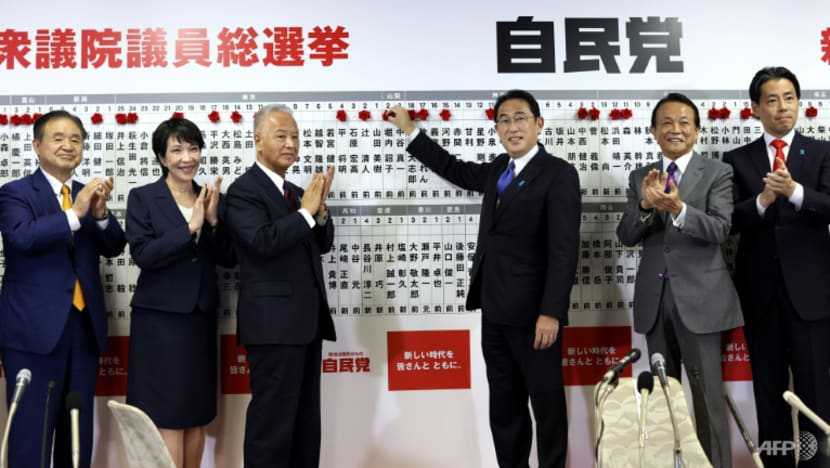Japan ruling coalition holds power as PM Kishida touts 'trust'
01 November, 2021

Japan's ruling coalition celebrated holding on to a strong majority in weekend elections, with Prime Minister Fumio Kishida hailing the results as a "big deal" for trust while saying that he wants to focus on boosting the world's third-biggest economy.
Investors in Tokyo cheered news that Kishida's long-ruling Liberal Democratic Party (LDP) and its junior coalition partner Komeito had won 293 of the 465 seats in the lower house of Japan's parliament.
The benchmark Nikkei stock index rose more than 2 per cent after Japanese media reported the result, which enables the ruling bloc to enact Bills on issues from pandemic stimulus to defence spending on its own.
But even though the coalition lost fewer seats than feared, newspaper editorials urged Kishida, who took office a month ago, to act decisively to shore up public support ahead of a key upper house vote next summer.
Kishida said on Sunday that exit polls demonstrated the public's faith in the LDP, which has held power almost continuously since the 1950s.
"If the ruling coalition is given a majority, the government is given trust. It is a big deal," the 64-year-old said.
He said that he hoped to issue a fresh stimulus package by the end of the year to counter the impact of COVID-19 on the economy, having previously said that the relief measures would be worth tens of trillions of yen.
Kishida has outlined plans to tackle inequality heightened by the pro-business policies of his predecessors Yoshihide Suga and Shinzo Abe, Japan's longest-ruling prime minister.
The LDP has also said that it will aim to increase defence spending to counter threats from China and North Korea.
But the new prime minister now needs to "fully prepare for a possible sixth wave of virus infections as early as this winter", and firm up how his economic policy ideas will work in practice, the Asahi Shimbun daily said in an editorial.
"TOUGH ELECTION BATTLES"
A decline in the number of LDP seats had been expected for Kishida after his predecessor Yoshihide Suga resigned just a year into the job, partly due to public discontent over the government's response to the virus crisis.
Japan has recorded around 18,000 deaths, a comparatively low toll for its population of 126 million, and has never imposed a blanket lockdown.
But many businesses, especially bars and restaurants, have suffered through prolonged periods of restrictions on commercial activity.
The LDP previously boasted a commanding majority of 276 seats on its own, and in Sunday's vote held on to 261, maintaining its single-party majority.
In recent decades, votes against the LDP have been split between multiple major opposition parties, but this time, five rival parties boosted cooperation in a bid to dent its stranglehold.
The Yomiuri Shimbun daily said that the ruling party had been "forced to fight tough election battles" throughout Japan.
But differences in key policy positions between the two main opposition parties, the Constitutional Democratic Party of Japan (CDP) and the Japanese Communist Party - especially over the country's relationship with the United States - led to their defeat, the newspaper said.
Meanwhile, a surge in votes for the Osaka-based reformist Nippon Ishin party pushed it to become the third-largest party after the LDP and CDP.
"Nippon Ishin gathered votes from conservative voters who are frustrated with the LDP-Komeito coalition government," the Yomiuri said.
An estimated 56 per cent of voters cast their ballots, Japanese media said, a continuation of the low turnout rates that have plagued the country's elections in recent years.
The prime minister has said he wants to attend the COP26 summit in Glasgow as his first overseas engagement after the election.
Source: www.channelnewsasia.com
TAG(s):
